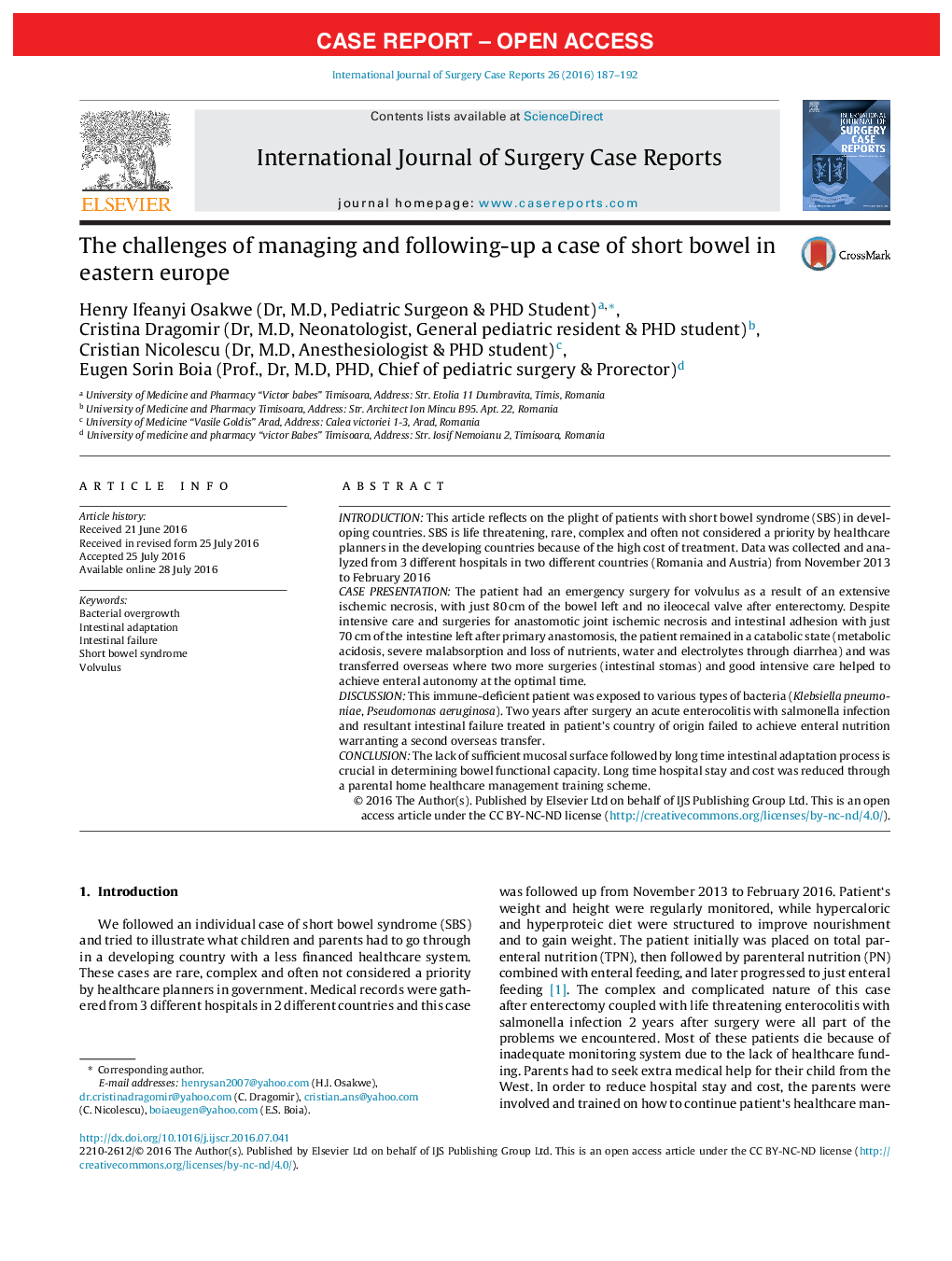| کد مقاله | کد نشریه | سال انتشار | مقاله انگلیسی | نسخه تمام متن |
|---|---|---|---|---|
| 4288217 | 1612088 | 2016 | 6 صفحه PDF | دانلود رایگان |
• Long time hospital stay and cost are reduced by parental home care, while adequate hydration maintenance scheme is sine qua non.
• Inadequate monitoring system and lack of funding are two important factors that can influence morbidity and mortality.
• The immune deficient short bowel syndrome patient is always exposed to opportunistic life threatening infections.
• The lack of sufficient mucosal surface and long time intestinal adaptation process is crucial in determining bowel functional capacity.
• Intestinal stoma compared to primary anastomosis is debatable in short bowel syndrome surgery.
IntroductionThis article reflects on the plight of patients with short bowel syndrome (SBS) in developing countries. SBS is life threatening, rare, complex and often not considered a priority by healthcare planners in the developing countries because of the high cost of treatment. Data was collected and analyzed from 3 different hospitals in two different countries (Romania and Austria) from November 2013 to February 2016Case presentationThe patient had an emergency surgery for volvulus as a result of an extensive ischemic necrosis, with just 80 cm of the bowel left and no ileocecal valve after enterectomy. Despite intensive care and surgeries for anastomotic joint ischemic necrosis and intestinal adhesion with just 70 cm of the intestine left after primary anastomosis, the patient remained in a catabolic state (metabolic acidosis, severe malabsorption and loss of nutrients, water and electrolytes through diarrhea) and was transferred overseas where two more surgeries (intestinal stomas) and good intensive care helped to achieve enteral autonomy at the optimal time.DiscussionThis immune-deficient patient was exposed to various types of bacteria (Klebsiella pneumoniae, Pseudomonas aeruginosa). Two years after surgery an acute enterocolitis with salmonella infection and resultant intestinal failure treated in patient’s country of origin failed to achieve enteral nutrition warranting a second overseas transfer.ConclusionThe lack of sufficient mucosal surface followed by long time intestinal adaptation process is crucial in determining bowel functional capacity. Long time hospital stay and cost was reduced through a parental home healthcare management training scheme.
Journal: International Journal of Surgery Case Reports - Volume 26, 2016, Pages 187–192
